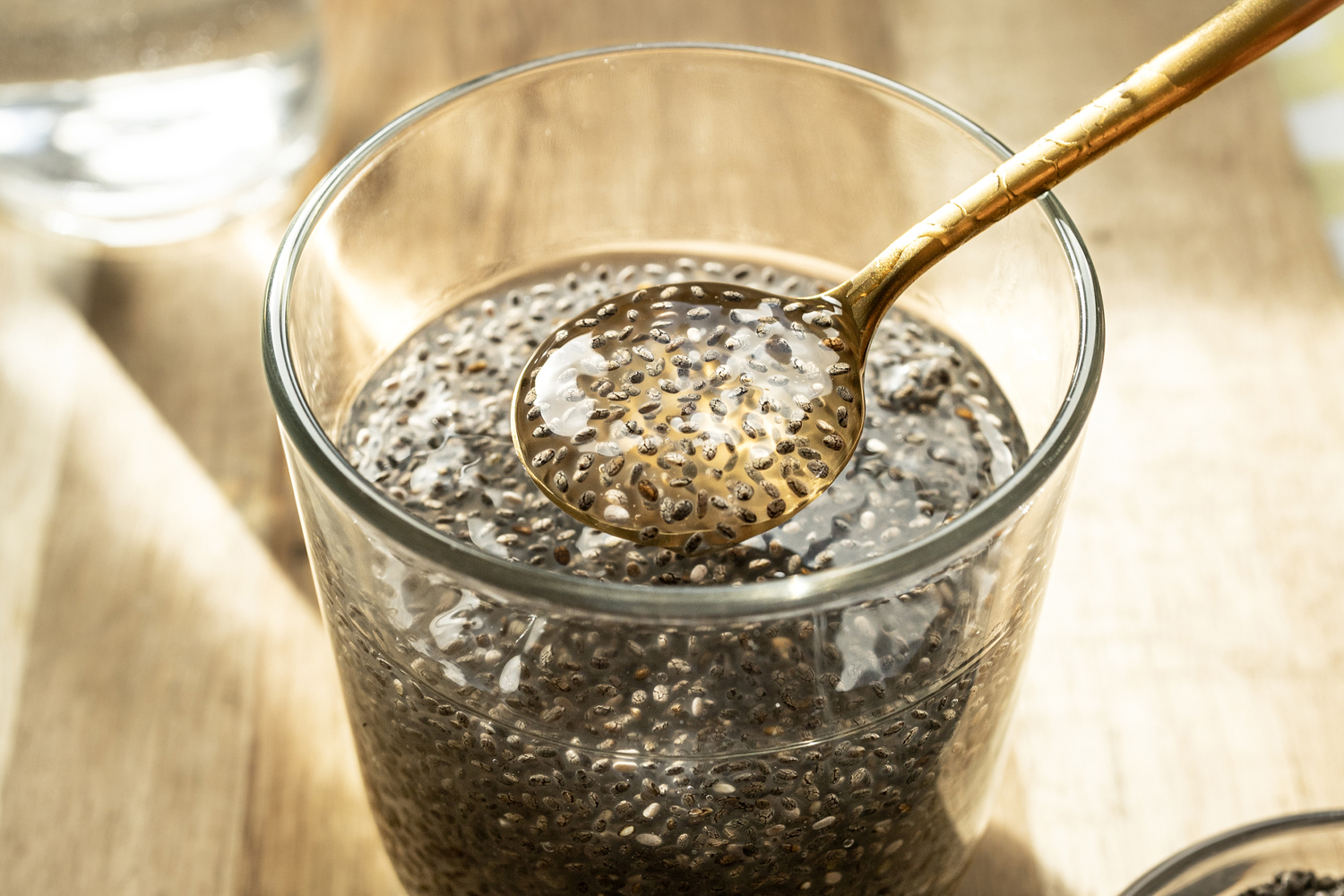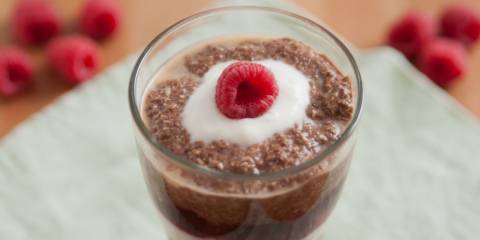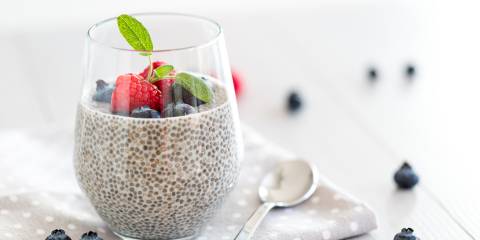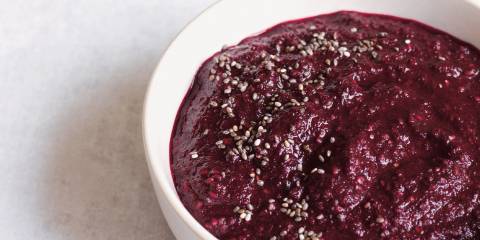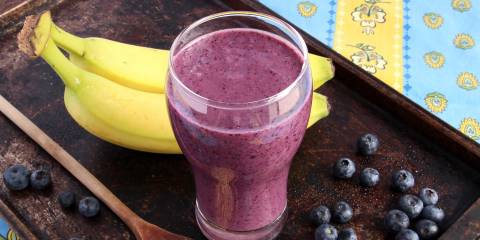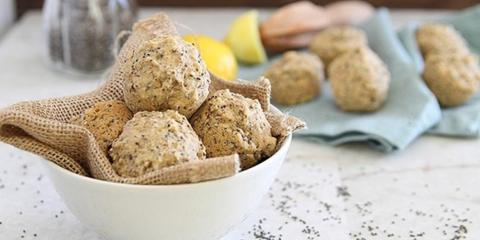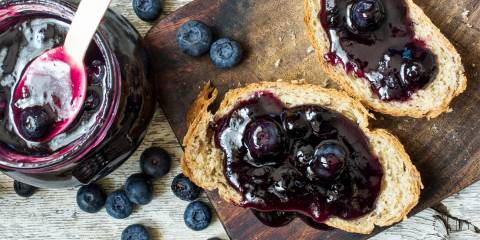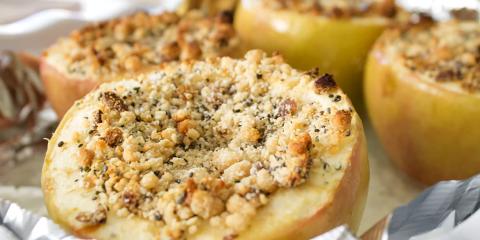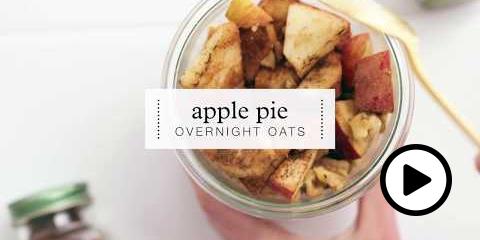If you remember the strange-looking chia pets that sprouted seeds to resemble animal fur, you’re familiar with chia. Watching the tiny seeds grow into decorative knick-knacks is one thing, but:
Have you considered drinking chia seeds?
Lots of people do, especially since chia water has become a hot social media trend. Proponents claim a glass of water infused with chia seeds supports weight loss and helps with hydration, especially during hot weather and intense workouts.
What’s Chia?
Tiny little round seeds that come from a purple-flowered plant native to Central America, chia is considered a superfood.
What Color Are Chia Seeds?
The seeds can be black, brown or white, although color doesn’t matter in terms of nutritional quality.
Benefits of Chia Seeds
This is one impressive résumé for such a little seed.
-
Basic Nutrition
Chia seeds are a good source of:
- antioxidants
- protein
- phosphorus
- magnesium
- iron
- zinc
They're low in carbs and calories, and high in fiber (approximately 10 grams per 2 tablespoons). Fiber helps you feel full and can aid in weight loss.
-
Omega-3 Essential Fatty Acids
Chia is also one of the best plant-based sources of omega-3 fatty acids.
-
Prebiotic Properties
When added to water the seeds serve as a natural prebiotic, feeding beneficial bacteria in the gut.
What's Chia Water?
Where the chia plant is native, people traditionally enjoyed and currently drink what’s known as chia fresca (chia water) for its hydrating effects.
When chia and water are mixed together, they create gel water. This is actually water’s fourth state (the others are liquid, solid, and vapor).
Chia Water for Hydration
Gel water is becoming an increasingly popular way to hydrate.
Why is it such a big deal? With an extra hydrogen molecule and oxygen molecule, gel water is quicker and easier to absorb, resulting in enhanced hydration.
This type of water can be found in:
- aloe plants
- watermelon
- cucumbers
- iceberg lettuce
- jicama
- cauliflower
- berries
- chia water
Chia Water for Weight Loss
Claims abound that drinking chia water can help prevent hunger, since the seeds absorb about 10 times their weight when placed in liquid.
One benefit of the seeds is their soluble fiber content, which can help you get to a healthier weight by slowing digestion.
That being said, ingesting large amounts of chia water is not a substitute for a healthy eating plan, and should not be used as a sole weight-loss tool.
The formula for weight loss that seems to work for some is to drink chia water to keep hunger pangs at bay, and to also follow a low-calorie diet.
Making Chia Water
Chia water is simple to make:
- Combine 1 to 2 tablespoons chia seeds with 8 to 10 ounces of water.
- Use cold or warm (not hot) water. If you use warm water, the seeds will absorb into it more quickly.
- Consider starting off with 1⁄2 tablespoon chia seeds to see how well your body handles them.
- Allow the seeds to soak anywhere from a few minutes to as many as 15 (the longer the soak time, the more gel-like the drink will be).
Flavoring Chia Water
Some people find the flavor of chia water a little off putting. If you do, too, here are some tips:
-
Fruit Juices
A splash of lime, lemon, orange, or other fruit juice can help.
Try a blend of lime and pineapple juices for a sweet-tart tropical taste.
-
Sweeteners
For sweetness, add a small amount of agave syrup, maple syrup, honey, or stevia.
-
Muddled Berries
For even more flavor and a pop of color, your favorite fresh berries can be muddled into the water before adding the chia seeds.
-
Coconut Water
Try replacing the water with coconut water for an electrolyte boost.
-
Mocktails
Try this sparkling chia fresca from our friends at Bob's Red Mill.
Garnish your chia water with slices of fresh ginger root or cucumber, or try mint leaves.
Precautions
Adding chia seeds to water is a safe drink for most people.
It’s best to limit chia seed quantities to no more than 2 tablespoons per day.
-
High Fiber Content
Due to the seeds' high fiber content, some individuals may experience abdominal discomfort, constipation, gas, bloating, or diarrhea.
Since chia seeds have a good amount of fiber, drinking extra water (along with the chia water) is important to alleviate any gastrointestinal distress.
-
Expanding Seeds
Always soak chia seeds before ingestion. Those who have problems swallowing (dysphagia) should avoid chia seeds, as any dry ones can expand in the esophagus.
-
Medicinal Interactions
Individuals on blood-thinning medications may experience interactions when consuming chia seeds.
-
Allergy Warnings
Those with nut or seed allergies should exercise caution and consult with their healthcare providers before ingesting chia seeds.
